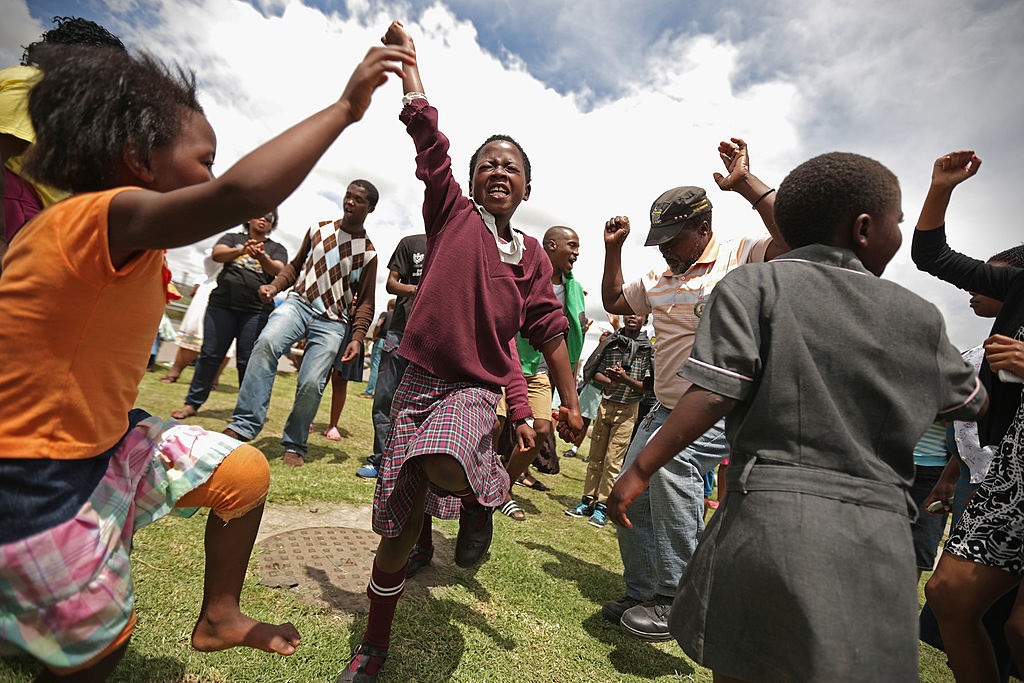
- Africa Day was first marked over six decades ago.
- SA's freedom from colonialism and apartheid was one of the key drivers of African unity.
- This year's theme looks at the importance of culture, heritage and language.
Each year, the African Union (AU) commemorates International Africa Day on 25 May.
It is usually marked by festivals, concerts and speeches.
But, beyond the colourful festivities, what's the point?
In South Africa, the day is a reminder of the country's relationship with the continent from which it was largely cut off during the apartheid era.
President Cyril Ramaphosa's letter this week is a reminder of the cooperative role South Africa can play, and the benefits it stands to reap from platforms like the Continental Free Trade Area, which is a single market for goods and services to move across countries in a similar structure to the European Union.
The president's statement echoed the ANC's wish for Africa Day.
"Consistent with our January 8 statement, the ANC is very confident that the African Continental Free Trade Area, which came into operation on 1 January 2021, will offer new opportunities for industrialisation, economic growth and intra-African trade," the ruling party said in a statement.
The history
The first time Africa Day was celebrated in some form, in Accra in 1958, there were only eight independent countries involved in the celebrations.
Kwame Nkrumah, Ghana's first president after independence in 1957, convened the First Congress of Independent African States.
The conference was meant to be a collective platform, on which newly formed states could build a post-colonial legacy.
The discussions were in the vein of Pan-Africanism, a political and cultural movement, which had its roots in the mid-19th century ideas of formerly enslaved people in the West Indies and the United States of America. It moved to Africa through the support for the continent's liberation movements.
South Africa's role
The apartheid regime prevented the ANC from attending the 1958 congress - but the ANC, at the time, was able to send a memorandum to Nkrumah and the delegates.
ANC activist Alfred Hutchison, who had just been acquitted of treason charges, delivered the memorandum. He never returned.
Also at the first conference was Patrick Duncan, a member of the old Liberal Party of South Africa, who later joined the Pan-Africanist Congress, according to South African history archives.
The National Liberation Front of Algeria and the Union of Cameroonian Peoples were among the other liberation movements at the conference.
It was such a success that it was decided the day would "mark each year the onward progress of the liberation movement in Africa and to symbolise the determination of the people of Africa to free themselves from foreign domination and exploitation".
The African Union
By 1963, 32 African countries were independent and met in the Ethiopian capital, Addis Ababa, to form the Organisation of African Unity (OAU).
The organisation's "primary aim will be to 'decolonise' the remaining bastions of white rule in Southern Rhodesia, South Africa, Mozambique and Angola", the BBC reported at the time.
They met on 25 May, and it had been a year in the making.
It saw the launch of the OAU Charter.
Over the next few years, the OAU supported liberation movements, like the ANC. And, in particular, pressured the international community to impose sanctions on the apartheid government.
In 2001, the OAU was dissolved, and was replaced by the African Union.
The new formation had a broader mandate of development, peace and security, in order to address the new set of problems the continent faced.
In the years since, the AU has used the day to launch a series of programmes, which focuses on issues like gender, youth and health.
This year's theme - Arts, Culture and Heritage - looks at preserving and restoring history, identity and culture.
The Africa Desk is supported by the Hanns Seidel Foundation. The stories produced through the Africa Desk and the opinions and statements that may be contained herein do not reflect those of Hanns Seidel Foundation.
